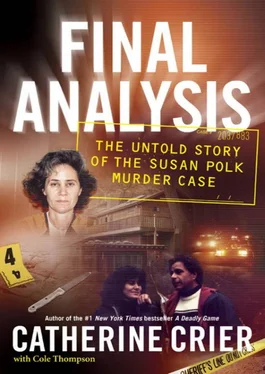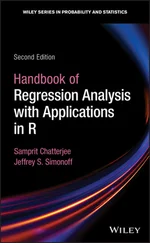IN HER OWN WORDS
When Detective Costa initially found Susan’s diary, he did not know its value. While many who had been working on the case were hoping that the document would provide enough information to convict her, others remained skeptical. Police believed the file might reveal Susan’s motive, personal thoughts—maybe even the planning of Felix’s murder. Meanwhile Susan had told Detective Costa that the diary contained both “real and imaginary events,” as she tried to downplay the significance of the text.
Despite her attempt to discredit the writings, all of the entries in the document were dated and easy to follow, and they depicted Susan’s thoughts, desires, and frustrations in startling detail during the seventeen months prior to Felix’s murder. Her notations portrayed two very different sides to this bright and complicated woman. On the one hand, some of Susan’s writings were articulate and thoughtful. She had a firm grasp on the couple’s financial picture as she managed the household budget and myriad investment properties they owned. She was well-read and spent a good deal of time perusing a mixed bag of literary works.
Yet sprinkled amid the coherent writings were the ramblings of a woman who regularly suffered from delusions. Susan was convinced that she was a medium, that Felix was a Mossad agent, and that he had been putting 40 percent of his money into an account in the Cayman Islands for the past twenty years.
Susan’s journal began in May 2001, just four months after she attempted suicide at Yellowstone National Park. At the time, she was residing in a rental cottage in Stinson Beach, just over the Golden Gate Bridge via a winding road from San Francisco. According to her writings, she had moved out of the Orinda house the previous month after yet another violent encounter with Felix.
Interestingly, Susan’s inspiration for the diary came from the book Bridget Jones’ Diary. She loved how the book’s protagonist used a journal to poke fun at her trials and tribulations and decided to adopt a similar sense of humor about her own situation. However, after reading a few pages, it quickly became clear that Susan’s diary was not funny. Instead, it represented a series of disjointed ramblings by a woman who clearly harbored deep-seated anger and perhaps hatred for her husband. At one point she even referred to Felix as Dr. Josef Mengele, the ruthless Nazi concentration camp doctor.
In addition to the diary, Costa and his team had also turned up several of Susan’s personal papers during their search of the office in the main house, including a number of letters written by her to various people involved with her divorce. One of the first letters went to Felix’s divorce attorney, Steve Landes, in which she offered to sign over custody of Eli and Gabe in exchange for a speedy resolution to the divorce. Her return address was listed as a post office in Stinson Beach.
“This is to confirm that I will not be pursuing physical custody of my children, Eli and Gabriel,” Susan wrote to Landes on May 12, 2001. “They wish to remain in Orinda, and I intend to relocate out of state…. I am not requesting regular visitation…. If you draw up the custody documents, I will sign them.”
Susan had requested the legal papers be drawn up prior to the couple’s court hearing on June 6. Yet Detective Costa found no such agreement among the written materials he confiscated.
In a second letter written that same month, Susan informed Felix of her intent to leave the Bay Area following the sale of the Orinda residence. She cited “cost of living” and “the damage” he had done to her reputation by “maligning me publicly as ‘psychotic’ and ‘delusional,’” as reasons for moving out of state. She also related her displeasure with Felix’s decision to use monies from their rental income to pay his personal expenses and suggested he refinance the Orinda property to cover real estate taxes until the residence was sold.
Susan also blasted Felix’s request that she undergo a psychological evaluation before gaining custody of their minor children. In her recent letter to Steve Landes, she stated that she was not interested in custody of her children, apparently giving up on the idea of custody because of the court’s continued reliance on his psychological opinion.
“As the court already has demonstrated that it has been and, in all liklihood [sic], will continue to be influenced or swayed by your opinions or recommendations, it seems likely that any professional you hire to do the evaluation will also be swayed. It is clear that you are determined to punish me by taking the kids away from me. You have said repeatedly to me, and them, that you will not let them go. It’s time to move on.”
Susan closed by reiterating her willingness to forgo physical custody of them, but demanded prompt payment of her monthly support checks—$6,500 in spousal support and $2,853 for her share of Social Security. She suggested Felix set up automatic payments directly from his checking account.
While she was writing letters, Susan continued to fill her diary with entries that shed light on events and her mental state in the days leading up to her suicide attempt on January 16, 2001. “Felix had thrown all of my clothes on the floor and gone on one of his tirades, and I got very upset and left and went to Yosemite. It just seemed hopeless. I love my children so much and it felt like he was changing the character of my children and that he was turning them into people like himself. I had this moment of despair and I took a bottle of aspirin and Scotch. And then I realized I had made a mistake. I didn’t want to die.”
Susan wrote that she phoned Felix for help and was admitted to a local hospital where a doctor found her to be depressed but sane. When the psychiatrist asked her what was going on, Susan was momentarily silent. Oddly enough, she was concerned about Felix’s reputation and wanted to protect him. What she didn’t know was that Felix was in an adjoining room insisting that she be committed for treatment.
“Here he is saying these stupid things about me, and I’ve got his power of attorney,” Susan noted. “It was bizarre. Here I am managing all of our assets and Felix was trying to insinuate that I was crazy.”
In late May 2001, Susan and Eli boarded a plane for Paris. Her diary entries made it clear that Susan had high hopes for the European jaunt. She planned to use the vacation as an opportunity to “bond with her middle son” and to show Eli the proper way to treat a woman. She felt her teenage sons were becoming abusive just like their father and wanted to intervene before it was too late. It did not take long for reality to hit home, and it was on the plane to Paris that her fragile psychological state became apparent.
“Half way through [the flight], I started feeling sick to my stomach… and go to the bathroom…. One of the stewardesses was coming down the aisle… and told me that I was going to get ‘trapped in the bathroom by the carts.’ …Went ahead to the bathroom and was inside… for at least twenty minutes. Came out, and was jumped on by her partner for not wearing shoes on the plane….
“Ordered by rude fellow to put shoes on immediately and go back to my seat. Told him he was very rude. Started up aisle only to run into (rude attendant with cart)…. Told me to get out of her way…. I couldn’t because other attendant was blocking me….
“She ordered me to go back to my seat, raising her voice, and grabbing my arm several times. I told her not to touch me and to stop shouting.”
Upon arrival, her hopes for the trip quickly receded as Eli quickly lost interest in the European holiday. On the second day after their arrival, Eli slept a lot, and Susan speculated he was getting sick. The following day proved no better as Eli informed her that he missed his friends and wanted to go home. The conflict climaxed while Eli and Susan were on their way to eat dinner.
Читать дальше











